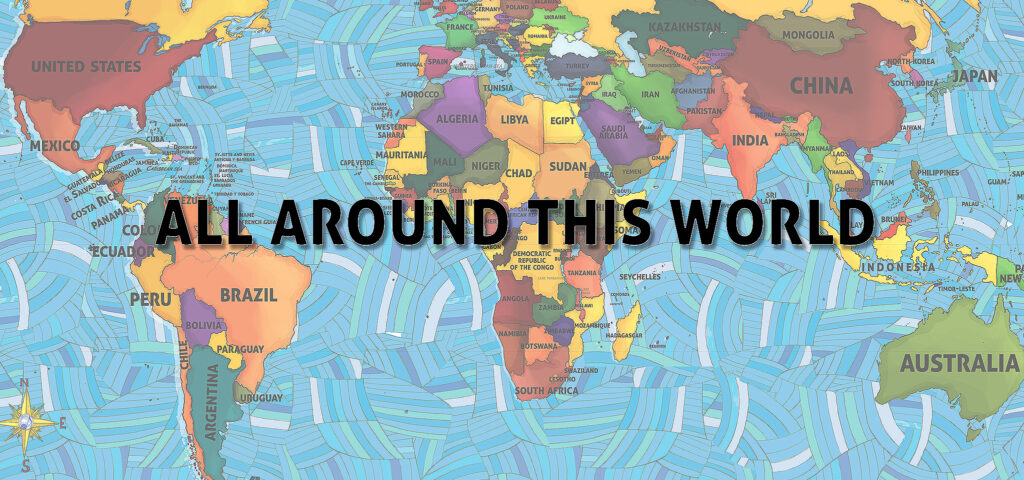There are no definitive statistics on Iran‘s language distribution, but the CIA Factbook suggests that about 60% of the population speaks Persian as its primary language and another 25% speaks Azeri and related Turkic languages. About 10% of Iranians are Kurds, most of whom speak Kurdish.
Persian is an Indo-European language and is actually a distant cousin of English. In different incarnations–linguists distinguish Old Persian, Middle Persian and Modern/New Persian–it has been the primary language of Persia/Iran for about 2500 years. “Modern” Persian itself is actually over a thousand years old. It appeared in the 9th century, not that long (in the grand scope of Persian history) after the occupying Islamic Ummayad Caliphate (661-750) [check out the “West Asia and the Middle East overview” I plan to send this session an introduction to the Caliphates] pushed Persian aside decreed Arabic as the official language of the land’s government, culture and religion. Persian adapted, transforming its alphabet to one using Arabic script and adopting many Arabic words. In part due to this flexibility the language refused to disappear; it eventually returned as the main language of the land.
Iranians express great pride in Persian and revere it as the language of great poetry and literature. Persian is lyrical, full of nuance, a means of communication that values imagery and revels in verbal twists and turns. “Poetry thrives in vagueness and metaphor and so does the Persian language!” says bi-lingual Persian poet Zohreh Ghahremani, who chooses to write either in English or Persian depending on the mood she wants that particular work to convey. “Persian language stands apart among all Eastern languages in poetry,” says BestIranTravel.com’s page on Persian poetry. “Persian language is soft and expressive. There are many options for Persian poets in use of words because there are many meanings to one word and many ways to express one’s thought. That is why Persian poetry and language are rich in expression.”
“Persian” vs. “Farsi” vs. “Parsi”:
Should we refer to the language of Iran as Persian, Farsi or even, as some do, Parsi? “No-More-Farsi.com” insists we go with Persian. Why? Says No-more-farsi.com, “‘fars + i’ is the Arabic form of the Persian word ‘pars + i’; what ‘Pars’ means?. ‘Pars’ in Persian means somebody who’s Persian and also it means the land of Persians.” The site goes on to ask and answer the following question: “Is ‘FARSI’ appropriate, because Iranians call
their language ‘Farsi’ not ‘Parsi,’ ‘Persian’ etc.? No, certainly not, English as other languages have its equivalents for some nouns, for example, Elinika is the local name for Greeks’ language but in English it’s obviously ‘Greek’ not ‘Elinika’ and ‘Deutsch’ is the German language local name!”
Should we listen to No-More-Farsi.com and call Persian “Persian?” Maybe so, maybe not. Whatever we choose, the debate reminds us that the terms we use matter. And even if they don’t matter to us, they’ll most definitely matter to someone on the Internet.
(By the way, should No-More-Farsi.co also says we should also call Tajiki “Persian” or “Tajik Persian” and Dari “Persian” or Dari-Persian.” That’s a matter for another day.)
In class we’re going to say hello and goodbye in Persian (not Farsi, Parsi, Takiki or Dari!):
Hello: Salâm
Goodbye: Xodâhâfez


Comments are closed.